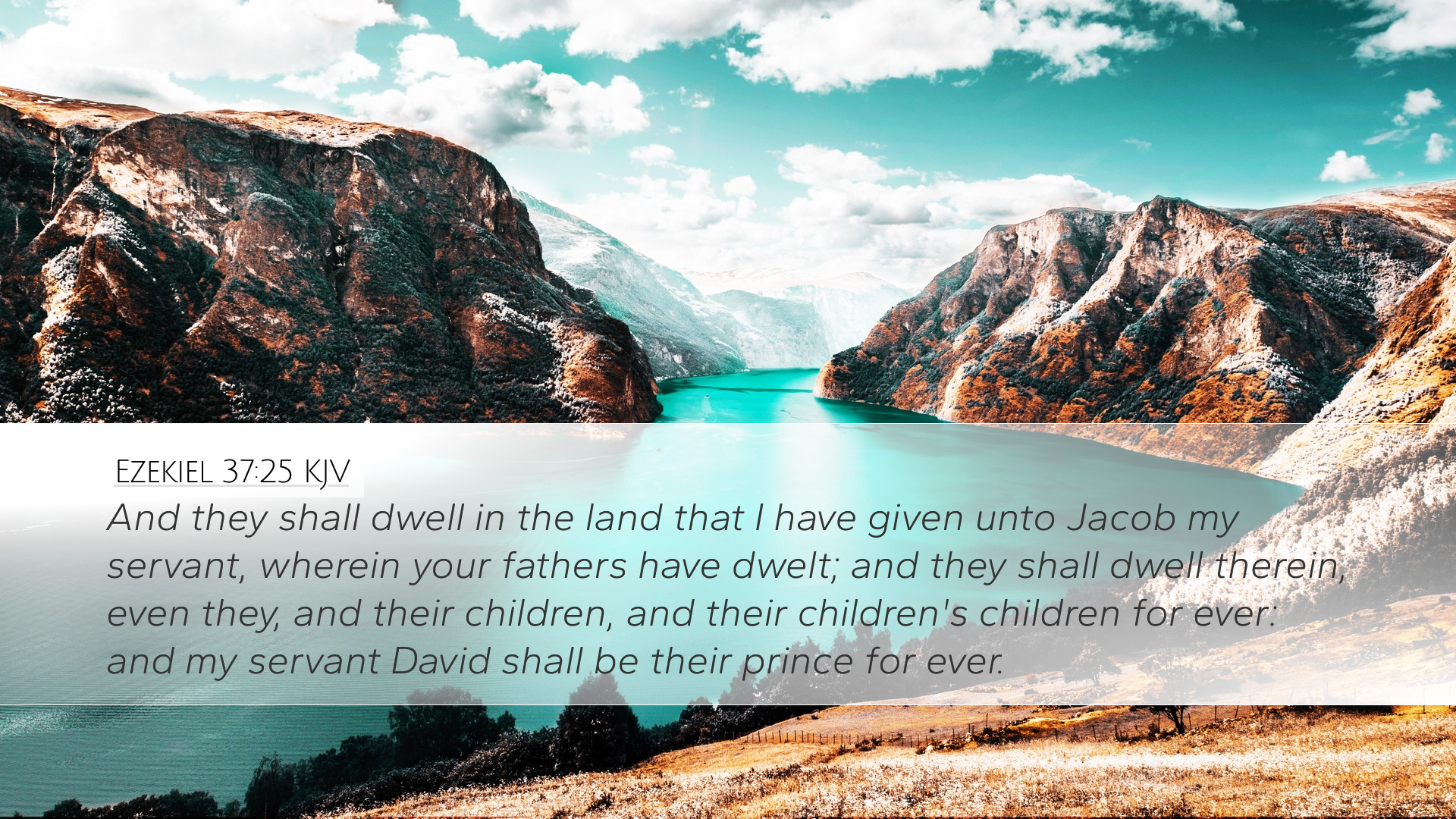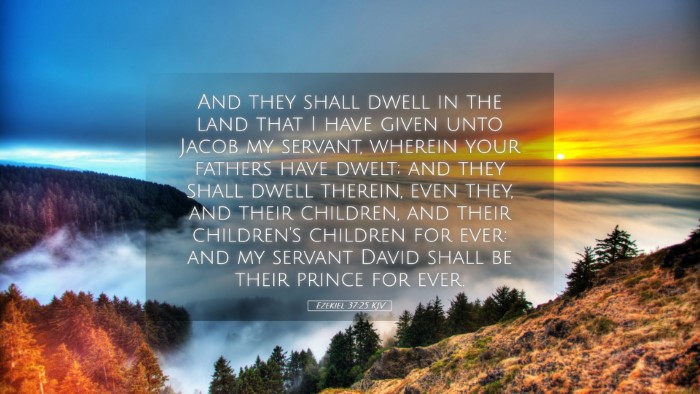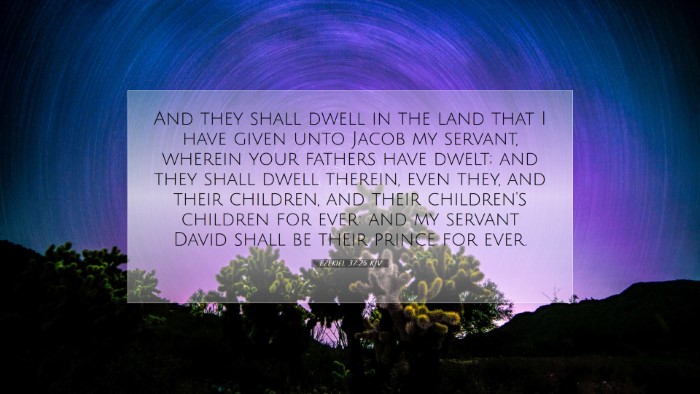Ezekiel 37:25 - Summary and Commentary
Bible Verse: "And they shall dwell in the land that I have given unto Jacob my servant, wherein your fathers have dwelt; and they shall dwell therein, even they, and their children, and their children's children forever: and my servant David shall be their prince forever." (Ezekiel 37:25, KJV)
context and Setting
The verse in Ezekiel 37:25 is part of the larger passage concerning the vision of the valley of dry bones, symbolizing the restoration of Israel. This chapter speaks to the hope of resurrection, restoration, and a future for the nation of Israel, emphasizing the covenantal promises of God. The imagery evokes the profound despair experienced by the Israelites in exile and the hope of restoration to their homeland.
Theological Insights
-
Promise of Restoration:
Ezekiel highlights God's faithfulness in restoring Israel to their land—a promise made to Abraham, Isaac, and Jacob. The prophetic declarations underline that despite their current desolation, God's plans encompass their future restoration.
-
Generational Blessing:
The mention of "their children, and their children's children" signifies not only immediate restoration but also a generational promise, signifying that this blessing is extended to future generations. God's covenant extends beyond individual believers to families and descendants.
-
Christological Significance:
The reference to "my servant David" in this verse has been interpreted as a prophetic foreshadowing of Christ, the true descendant of David. This sets a foundation for understanding Jesus as the shepherd-king who embodies the hopes expressed in Ezekiel’s prophecy.
Commentary from Traditional Sources
Matthew Henry
Matthew Henry notes that this verse represents a powerful pronouncement of assurance. He emphasizes God’s intention to fulfill His promises, reminding the faithful that their restoration will evoke profound joy. Henry also highlights that God's choice of David as a prince symbolizes ideal leadership, contrasting kingship with the reality of the divided kingdom, and serves as a reminder of the hope believers have in Christ as the ultimate ruler.
Albert Barnes
Albert Barnes focuses on the significance of belonging to a chosen community. He asserts that the restored people of Israel will enjoy uninterrupted fellowship in the land promised to their forefathers. Barnes elaborates on the permanence of this promise, emphasizing that such blessings are rooted in the faithfulness of God, reaffirming that the divine commitment to His people spans generations.
Adam Clarke
Adam Clarke expounds on the symbolic dimensions of the passage. He argues that it symbolizes not only the physical return to land but also a spiritual revival and unity among the people. Clarke highlights the importance of the covenant and how it shapes communal identity, leading to a future where worship and allegiance to God will be central to life in the promised land.
Practical Applications
-
Hope in Despair:
For pastors and teachers, this verse serves as a reminder that God’s promises persist even in our darkest days. Sharing this hope can uplift congregations facing personal and collective crises.
-
Intergenerational Faith:
The generational aspect of the promise invites believers to invest in discipleship and community building, ensuring the legacy of faith is passed down through families.
-
Christ-Centered leadership:
As Christian leaders draw parallels with the ultimate kingship of Christ, they are encouraged to embody servanthood and love in leadership, reflecting David's rightful place as a prince in God's kingdom.
Conclusion
Ezekiel 37:25 embodies profound theological themes of restoration, generational promises, and messianic hope. The richness of interpretation from historical commentaries, combined with practical applications, offers profound insights for the church today. This verse not only affirms God's faithfulness to His covenant with Israel but also extends the invitation to all believers to claim the life-giving promise of hope, renewal, and future fulfillment in Christ.


